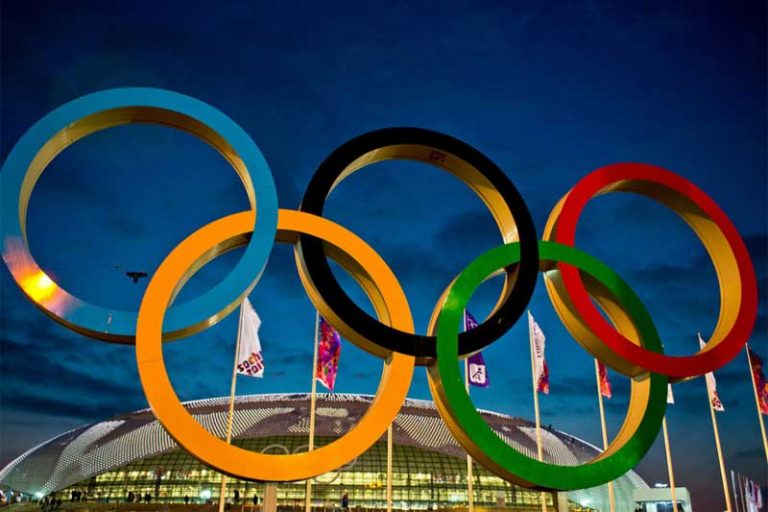Buoyed by euphoria surrounding the successful European Championships being held in Munich this month, the German Olympic Sports Confederation (DOSB) is once again opening a discussion about bringing the Olympic Games back to Germany. Dubbed by the local media as a mini-Olympics, nine sports championships are being contested in Munich making it the largest sport event in the nation since the Munich 1972 Games.

Playing up the event as a possible precursor for a run at the Olympics, DOSB President Thomas Weikert told ARD German television “the organization is great, the park is great, the weather does the rest – great, I have to say.”
He went on to describe it as a “very good event and you can see that you can build on it.”
Germany’s Rhine-Ruhr Metropolitan Region had been campaigning to host the most recently awarded 2032 Olympic Games, but the International Olympic Committee (IOC) surprised interested bidders by changing the process mid-campaign and rushing to name Brisbane the preferred candidate. The IOC went on to elect the Australian city to host the Games four years ahead of the typical schedule – derailing all challengers.
Last year then newly-elected Weikert said the DOSB would immediately consider bidding for another future Games, either the 2030 winter edition or in 2036. Although the IOC has not yet chosen candidates for the 2030 Games, three interested parties – Salt Lake City in the United States, Sapporo in Japan and British Columbia in Canada – are already deep in the discussion phase and at least one is likely to be named a candidate in December. That effectively rules DOSB out of the race as it isn’t expected to confirm a possible bid before the general assembly in Baden-Baden this December.
IOC President Thomas Bach has hinted that the 2036 host will be elected under his successor’s watch, which means it will be at least 2025 before candidates are named after his term ends.
Weikert said this week that any decisions on the potential site of a Games and the target year have yet to be made.
“We are currently developing what a possible process can look forward to an application,” Weikert told Sport-Bild.
“But before we talk about where, when and how, we first have to clarify why,”
Indeed, messaging could be key in a future bid for Germany, especially after stumbling through seven failed campaigns since the Games were last held at the same Munich site where the European Games are currently ongoing. Those 1972 Olympics were marred by the horrific terror attack that killed 11 Israeli team members and one West German police officer. A dark cloud also hangs over Germany’s only other Summer Games, Berlin 1936 – an event that became a tool for pre-war Nazi propaganda.
Prior to the failed Rhine-Ruhr project, Hamburg was proposed for the 2024 Games but failed to move forward when voters narrowly rejected it in a referendum. Munich lost a 2018 bid to host the Winter Games and was then prevented from following up with a 2022 campaign when voters rejected the plans in another referendum. The two referendum losses came after Bach, a German national, took over as IOC president.
Leipzig’s bid for the 2012 Summer Games ended when the IOC omitted it from the final short list because it failed to meet benchmark requirements. Berlin’s bid to host in 2000 was snuffed when IOC voters placed it fourth among five finalists on the ballot.
A 1992 Winter Games bid from Berchtesgaden fell when it received the least number of votes among seven candidates.
German Olympic Committee presidential candidate considers 2030 Winter Games bid
If the DOSB plans to pursue the next available 2036 Games it will have to come up with a very strong ‘why’ as it will mark the 100th anniversary of one of the darkest moments for both the Olympic Movement and Germany.
Potential rivals are already preparing to vie for the 2036 edition. This month Indonesian officials announced that its future capital Nusantara will build sports infrastructure in the new city in anticipation of a 2036 Games. India too is already planning new sport facilities for Ahmedabad’s bid to host. Qatar will to use the FIFA World Cup to be staged there in December as a springboard to another bid by Doha to host the Olympics.
Turkey is ignoring six failed Summer and Winter Games bids, still hoping to symbolically link Europe and Asia by winning a 2036 campaign. The United Kingdom may also vie with Birmingham looking to build from its successful Commonwealth Games this year and London hoping to leverage venues left from 2012 to host a record fourth Olympics.
Any potential bid will also need to contend with opposition campaigns, like those most recently led by the NOlympia group when Munich and Hamburg were toppled by referendums.
NOlympia spokesperson Katharina Schulze, who also leads Barvaria’s Green Party, told DPA that her group is ready to fight against any new bid.
“As a precaution, the NOlympia Munich Alliance has not dissolved,” she said.
“If there is a new application for the Olympic Games, a referendum is needed again,” she added, referring to current laws.
“An application and discharge of Olympic Games mean very high costs and includes massive interventions on site.”
Schulze also said that a Winter Games isn’t even an option for Germany, explaining “in times of the progressive climate crisis, to organize such a big event in our Alps is not up to date.”
The next two Summer Games will be held in Paris in 2024 and Los Angeles in 2028. Italy will stage the Milan-Cortina 2026 Winter Games.


